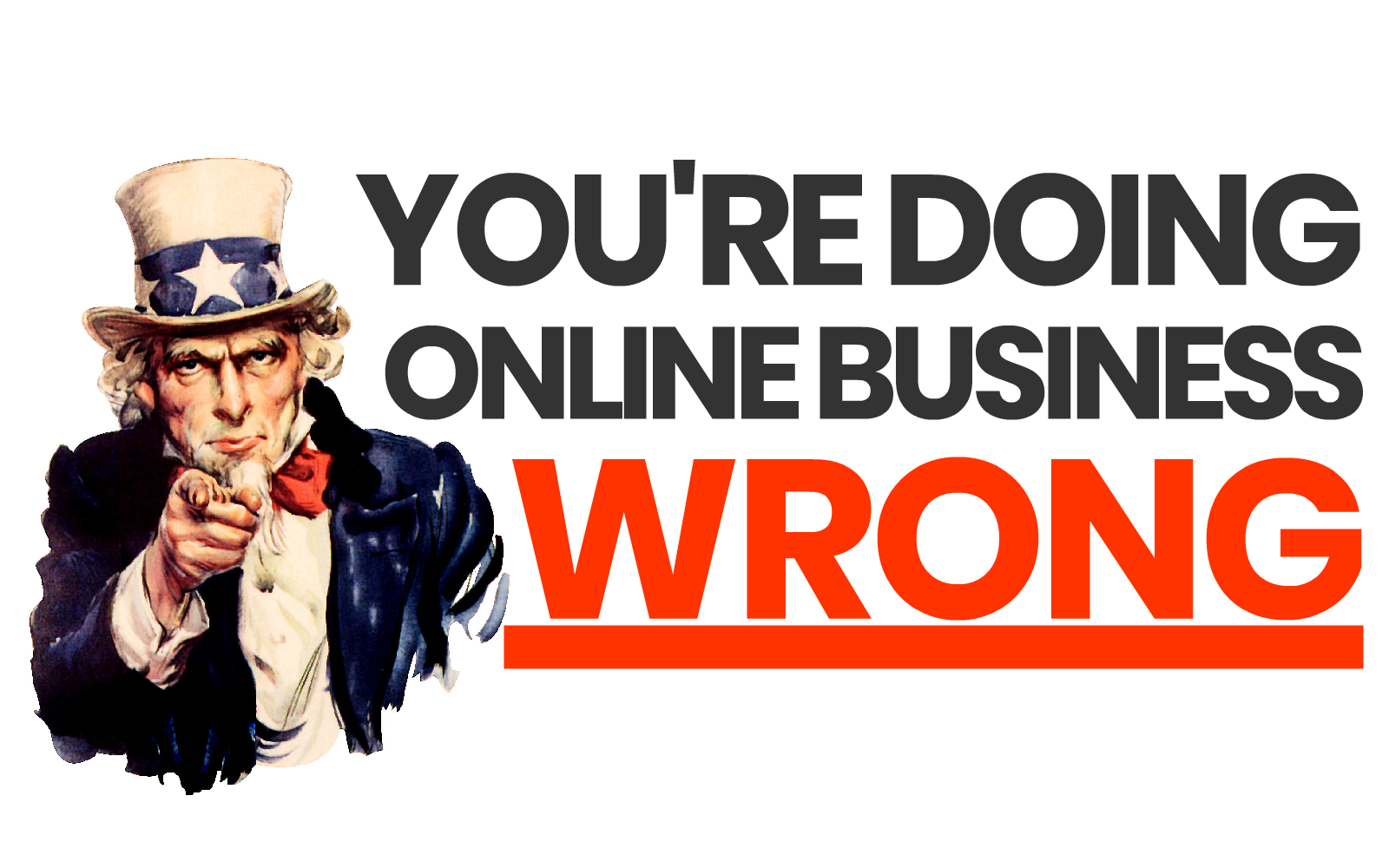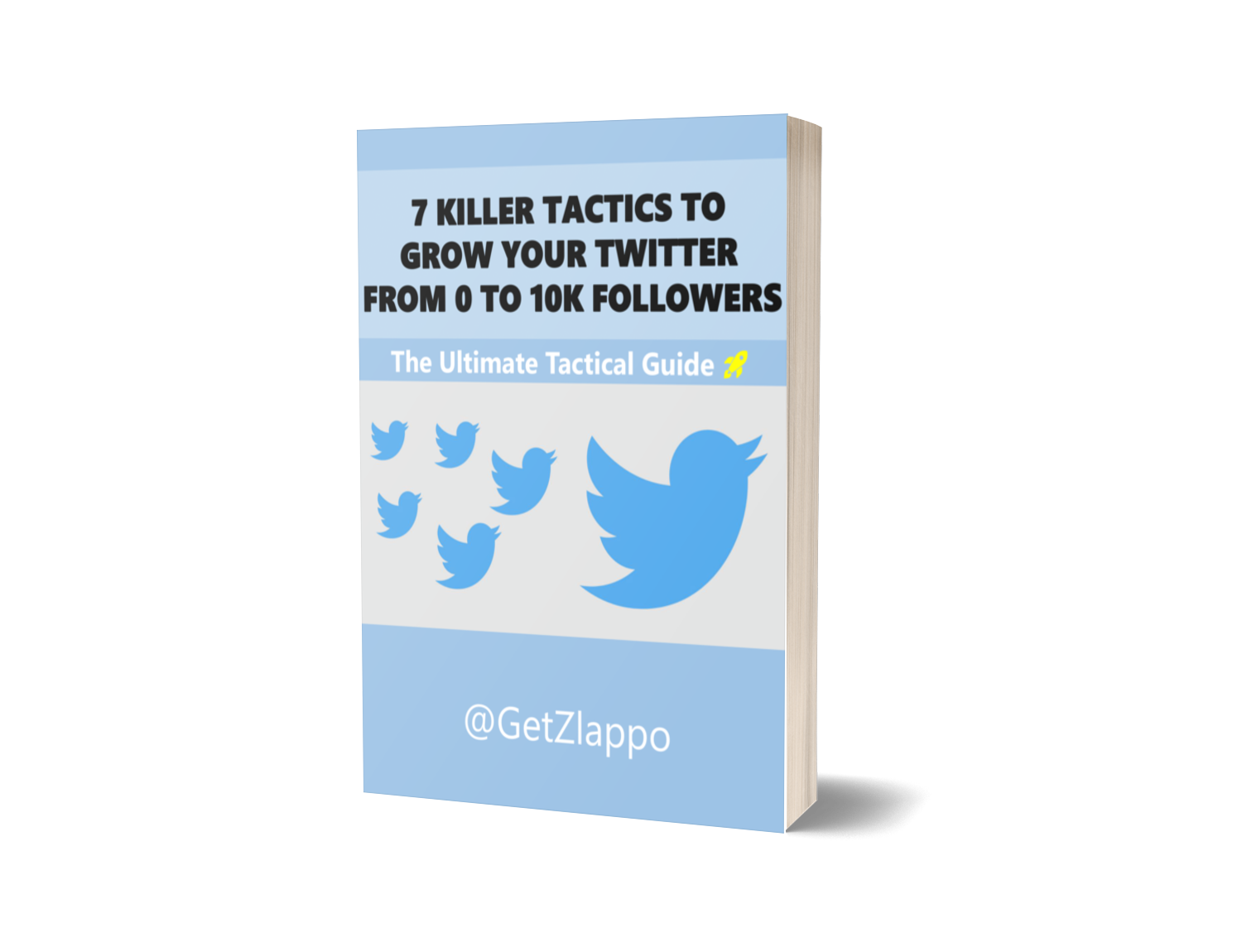
You're Doing Online Business WRONG. Here's How to Fix It.
9 min read jay@zlappo.com Back to Blog
Pardon the clickbait title, but I find this subject very applicable to many of my followers on Twitter (@therealjayber), so I need to get it off my chest.
The majority of my audience are self-starting entrepreneurs with fire in their bellies who want to achieve financial independence and make money online, quit their day jobs, decouple their earnings from their time and labor, spend more time with their families, become location-independent and travel the world, etc.
That's great. Twitter money fam is the best community on Twitter, bar none.
And "hustling," as we call it, is encouraged and glorified, but here's where the problem starts.
The hidden danger of hustle culture
The problem with hustle culture/hustle porn is that it creates the wrong mindset and paradigm.
As James Clear said:
Motion does not equal action. Busyness does not equal effectiveness.
I also posted about this recently on Twitter:
Be careful of people who peddle "hustle porn."
— ᴊᴀʏ | ᴢʟᴀᴘᴘᴏ 👨💻🔥🚀 (@therealjayber) June 3, 2020
Basically advocates of the idea that you must work yourself to death to have a chance at success.
Not only is that unsustainable, it's also wrong.
Make fewer moves.
But deliberate over each move.
Activity isn't productivity.
If you're doing it right, you should be able to increase your earnings while working less over time.
And this is where I see a lot of new entrepreneurs making a huge mistake.
They pat each other on their backs for hustling hard and making that dough, without considering how that dough is made.
Don't get me wrong. Making any income online at all is praiseworthy.
Making a great income online, that's money. Literally.
But the goal isn't to make money online. That's a very low bar, to be frank.
The goal is to create an asset that:
- Continuously earns money on its own in the background with minimal manual intervention; and
- You can sell for a lump sum once you're ready to move on to bigger and better things.
Unfortunately, many entrepreneurs, even the successful ones whose income screenshots you envy, have created not a standalone asset but merely yet another high-paying job to replace their old job.
Changing your paradigm: Making money online vs. Creating a cash flow asset
Making money online is easy.
Complete a task on Fiverr, affiliate for popular influencers, write copy freelance, sell an ebook/artwork that you created, or, hell, work remotely for a boss, and boom you've made money online.
But that's not the goal here.
The whole point of quitting your day job is so you can wrest total control of your time, location, and freedom.
The key difference between the two is scalability (which I've written about before in The 7 Levels of Making Money Online (& More Importantly, How to Level Up) -- go read it):
💰 A. Making money online
Making money online through active labor is additive (+).
You send some emails or make some social media posts, you close some sales. Repeat ad nauseam.
Your income stacks up linearly, pretty much in direct proportion to the labor that you perform.
(Yes, you'll get better at it over time, so each stack gets bigger, but the mechanics of said stacking are still linear.)
You get off the hamster wheel, your income tails off almost instantly.
No, that sale that happened while you were asleep isn't "passive income" if active labor is required to make that sale happen.
That's like saying you made passive income just because the direct deposit from your day job hit your checking account while you were asleep. 🤷
📈 B. Creating a cash flow asset
Creating a cash flow asset is multiplicative (x).
You write a blog post or publish a YouTube video, and you may or may not make a sale right away.
However, you do that repeatedly over months and years, consistently, and suddenly all that effort starts to compound.
The wheels start to turn, slowly but surely, and before you know it momentum is in your favor and the sales come in effortlessly (and more than ever), even as you tail off your active labor.
You make $0 in your first month (while working 60-hour weeks), $100 in your next, $1,000 by 6 months, and by the two-year mark you're at $20k (while working 4-hour weeks).
That's because each ounce of effort you put in builds sweat equity in your business and makes your asset more and more valuable.
And since you've built systems throughout your entire sales funnel (marketing/lead generation, fulfillment, payments, customer support) and stitched them together to ensure they work in concert to generate income in the background automatically, you have effectively freed up your time and labor to work on your business and not in your business.
All you're really doing actively is making that asset more valuable and useful over time; the income comes in passively by virtue of the existing value of your asset and the systems you've built to automatically capture the demand for said value.
What happens if you don't work at all for a month?
I think that's the acid test for whether you're just working an online job or creating a cash flow asset.
Say you get run over by a bus and you're hospitalized for a month.
Will your income:
- Decrease?
- Stay the same?
- Increase?
If you're working a day job, obviously your job income goes to zero.
If you hustle online for sales, or you're a freelancer, your income will decline for sure.
If you own a blog, YouTube channel, niche membership site, or SaaS app with established traffic, your income will most likely stay the same or even increase over that month when you're out of commission.
It's not sorcery; it's just logical.
Cash flow assets don't become less valuable simply because you stop working on improving it.
The value is there, it's already built out; you're akin to a land owner who's just renting out access to your asset to create recurring monthly income.
Why would a tenant stop paying rent just because his landlord didn't renovate the house for a month?
He's still living there and getting the full bang for his buck.
"Is my ebook a cash flow asset?"
Just because you're selling your own product doesn't mean you're necessarily creating a cash flow asset.
Is it an asset? Yes. But it sits there if you don't touch it.
Would it print money on its own? Nope.
It's inventory, so it's an asset, but it's not a cash flow asset.
You need to constantly promote it through active means to get it to make money.
Other things that fall under this category of "asset but not a cash flow asset" are:
- Email lists
- Social media accounts
- Artwork/Designs you can sell (e.g. Wordpress themes, icons, etc.)
Of course they're great, and in fact having them is a crucial step towards achieving financial independence, but, when you have to actively sell it to get clicks and sales, let's be honest: you're a salesman, not an equity owner.
Now, if you can somehow create a system where the ebook sells itself, then and only then have you created a cash flow asset.
My personal experience creating a cash flow asset
There's a reason I chose to build a SaaS app out of all possible forms of online hustle.
(For the uninitiated, I'm the founder of Zlappo, the best Twitter growth tool to grow your audience rapidly -- check it out, we're growing each day and our users love our app 😉).
It's because it has the highest automation potential out of anything else I can think of:
- My customers mostly come from the ether: organic Google searches, leads sent over from old blog articles, referrals from Quora answers I wrote a long time ago, etc. No active labor on my part.
- Once they sign up for a 14-day free trial, the app is self-serve and self-explanatory, and they get to use it right away. No active labor on my part.
- I drip out an email sequence automatically to my trial users to nurture them and educate them on how they can use my app to get maximum value. No active labor on my part.
- About 15% of my free trial users convert to paying customers near/at the end of the 14-day trial period. They click "upgrade," choose a monthly plan, enter their credit card information, and click pay. No active labor on my part.
- They continue to use the app month after month, and the app continues to deliver the value it says it will deliver, I get paid month after month, and everyone's happy. No active labor on my part.
You see what I'm driving at?
Of course, I still work incredibly hard to improve Zlappo on a daily basis and also create more marketing assets to drive even more traffic, leads, and sales to my app.
But my labor is directed overwhelmingly at making my cash flow asset even more valuable, i.e. "business owner work;" very little of it goes to "employee work" like sales, customer support, operations, etc.
In fact, this past week I fell sick, and I was sadly unable to work, despite really wanting to, and my monthly income increased over that time period.
My new customers discovered my app on their own, tried my app out on their own, paid for my app on their own, and continued using the app on their own.
I'm extremely grateful to be in this position, and, while my income isn't where I want it to be yet, I'm incredibly thankful to my users and customers who support my product and are willing to vote for it with their wallets.
So how do I create my own cash flow asset?
Easy, you create a "thing." It must be a thing. A noun.
And it has to be a thing that has the capability to be automated tip-to-toe: how your customers discover you, learn about you, buy your product, and get value out of your product.
Your job is only to make that thing itself more valuable; everything else (read: grunt work) should either be outsourced or, better yet, automated -- delegated to virtually-enslaved robots, you got that?
As is customary, again I'll have to cite Andy (@andyisom100k) as one of the very few guys among my followers who actually gets it.
I followed him when he had fewer than 5,000 followers, and now he's closing in on 20,000 followers, in just months.
And while he owns many cash flow assets, ranging from his Amazon FBA store to his YouTube channel, his main gig, The Affiliates Club, is the ultimate cash flow asset that one can build and own.
It's a niche membership site where affiliates and creators can network with one another and learn about affiliate marketing.
And why do I call it the ultimate cash flow asset?
Because:
- His customers are mostly referred by his affiliates. No active labor on his part.
- They sign up and pay on their own. No active labor on his part.
- They follow the courses and other learning materials he had already created. No active labor on his part.
- They use the networking platform he had already created on their own. No active labor on his part.
- Some also sign up as an affiliate for the platform itself, thus bringing him even more new customers. No active labor on his part.
If you're not convinced, just look at how many customers he pulled in in May, Jesus Christ:
I hang a calendar in my office and write down how many people joined The Affiliates Club every day. 😃
— Andy Isom (@andyisom100K) June 1, 2020
It’s cool to see new people joining every day!
Thanks to over 1,000 members! 🙏🏼🤙🏼💚 pic.twitter.com/gn6ywfcmh7
You want free money?
Because that's how you get free money.
Bonus: Here's another compelling reason to build a cash flow asset: it builds your net worth.
Income is great, but high income alone isn't equity.
A man who makes $200k from his day job or online job is poorer than a man who makes $200k from his cash flow asset.
Because, when they're both ready to move on, the first man basically resigns and is left with nothing.
The second man sells his business and pockets all the future income that his cash flow asset is capable of producing as one big lump sum, often 6-8 figures.
So why not build both at once? Income and net worth. Cash flow and equity.
The reason it's slower to make money building a cash flow asset is because your labor is divided into increasing not only your income but also your owner equity.
Pour conclure
I apologize if this week's article seems less actionable/tactical than usual.
The purpose of this article is to open your mind, change your paradigm, and instill in you the mindset that how you make your income is more important than how much income you make.
Because the goal isn't just to make a high income; the goal is to increase your quality of life.
What you have to do to get that income matters, and matters a lot, because it'll have a direct negative impact on the very quality of life that said income is supposed to improve.
Maybe you don't want to not work at all, and you're fine with actively working forever. Das cool.
The key here is optionality: being able to say you want to work, instead of have to work, is one of the most empowering things a person can experience, and definitely a milestone worthy of striving for in this short little journey called life.
Otherwise you'll forever still be enslaved, but this time you're your own slavemaster.
And you don't even know it.
About the Author

Follow @therealjayber
Let's stay in touch, subscribe to my newsletter! 👇👇👇
Exclusive weekly email on: business musings, personal anecdotes, general self-improvement 💪

